House Republicans say stealing polling data through open blinds is kosher. Democrats say it's creepy.
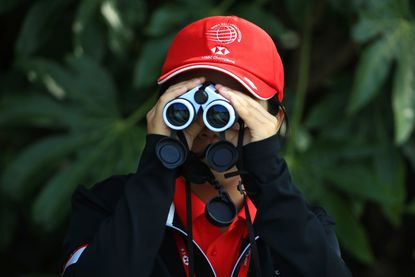

The campaign organizations for House Democrats and Republicans — the Democratic Congressional Campaign Committee (DCCC) and National Republican Congressional Committee (NRCC) — agree on the facts of what happened Wednesday night, Politico reported Friday morning: NRCC staffers walked across the street to the DCCC's headquarters to stake out some Democratic candidates, saw the blinds open on a DCCC polling meeting, and snapped some photos, nabbing pricy and potentially useful proprietary polling data on races Democrats are focusing on in November.
Republicans think they hit the jackpot, Democrats found the tactics "totally out of bounds, and downright creepy," Politico reports. "The NRCC and DCCC have disagreed on where to draw the line when it comes to opposition research. The Republican committee, for example, has declined to sign an agreement to not use hacked information in its campaigns."
Still, the DCCC didn't exactly take the high road. "When you have no ideas or accomplishments to run on, you creep in the bushes, take pictures through people's windows, and invade their privacy," communications director Cole Leiter told Politico. "The next time the NRCC is looking for tips on running winning campaigns, all they have to do is call us — we'll be more than happy to explain why Kevin McCarthy is the minority leader." If the DCCC doesn't start closing its blinds, a phone call might be superfluous.
Subscribe to The Week
Escape your echo chamber. Get the facts behind the news, plus analysis from multiple perspectives.

Sign up for The Week's Free Newsletters
From our morning news briefing to a weekly Good News Newsletter, get the best of The Week delivered directly to your inbox.
From our morning news briefing to a weekly Good News Newsletter, get the best of The Week delivered directly to your inbox.
Create an account with the same email registered to your subscription to unlock access.
Sign up for Today's Best Articles in your inbox
A free daily email with the biggest news stories of the day – and the best features from TheWeek.com
Peter has worked as a news and culture writer and editor at The Week since the site's launch in 2008. He covers politics, world affairs, religion and cultural currents. His journalism career began as a copy editor at a financial newswire and has included editorial positions at The New York Times Magazine, Facts on File, and Oregon State University.
-
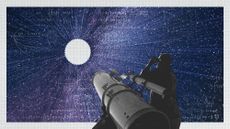 The hunt for Planet Nine
The hunt for Planet NineUnder The Radar Researchers seeking the elusive Earth-like planet beyond Neptune are narrowing down their search
By Chas Newkey-Burden, The Week UK Published
-
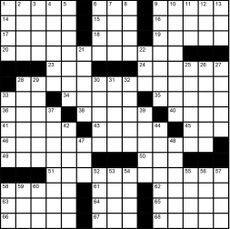 Magazine interactive crossword - April 26, 2024
Magazine interactive crossword - April 26, 2024Puzzles and Quizzes Issue - April 26, 2024
By The Week US Published
-
 Magazine solutions - April 26, 2024
Magazine solutions - April 26, 2024Puzzles and Quizzes Issue - April 26, 2024
By The Week US Published
-
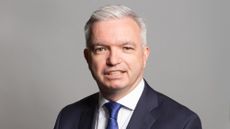 Mark Menzies: Tories investigate MP after 'bad people' cash claims
Mark Menzies: Tories investigate MP after 'bad people' cash claimsSpeed Read Fylde MP will sit as an independent while party looks into allegations he misused campaign funds on medical expenses and blackmail pay-out
By Arion McNicoll, The Week UK Published
-
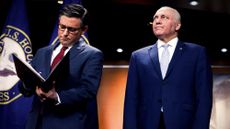 Why Johnson won't just pass Ukraine aid
Why Johnson won't just pass Ukraine aidSpeed Read The House Speaker could have sent $60 billion in military aid to Ukraine — but it would have split his caucus
By Peter Weber, The Week US Published
-
 Sudan on brink of collapse after a year of war
Sudan on brink of collapse after a year of warSpeed Read 18 million people face famine as the country continues its bloody downward spiral
By Peter Weber, The Week US Published
-
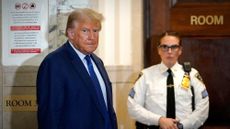 Trump's first criminal trial starts with jury picks
Trump's first criminal trial starts with jury picksSpeed Read The former president faces charges related to hush money payments made to adult film star Stormy Daniels
By Peter Weber, The Week US Published
-
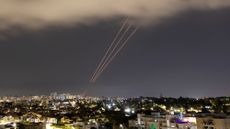 How will Israel respond to Iran's direct attack?
How will Israel respond to Iran's direct attack?Speed Read Iran’s weekend attack on Israel could escalate into a wider Middle East war
By Peter Weber, The Week US Published
-
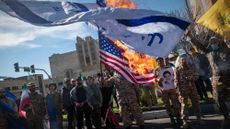 US, Israel brace for Iran retaliatory strikes
US, Israel brace for Iran retaliatory strikesSpeed Read An Iranian attack on Israel is believed to be imminent
By Peter Weber, The Week US Published
-
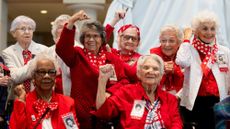 Congress honors real-life Rosie the Riveters
Congress honors real-life Rosie the RivetersSpeed Read These American women reshaped the work force during World War II
By Peter Weber, The Week US Published
-
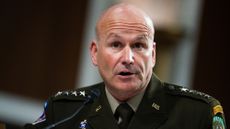 Outgunned Ukraine could fall, US general warns
Outgunned Ukraine could fall, US general warnsSpeed Read Without more US aid, Ukraine is at risk of losing the war
By Peter Weber, The Week US Published